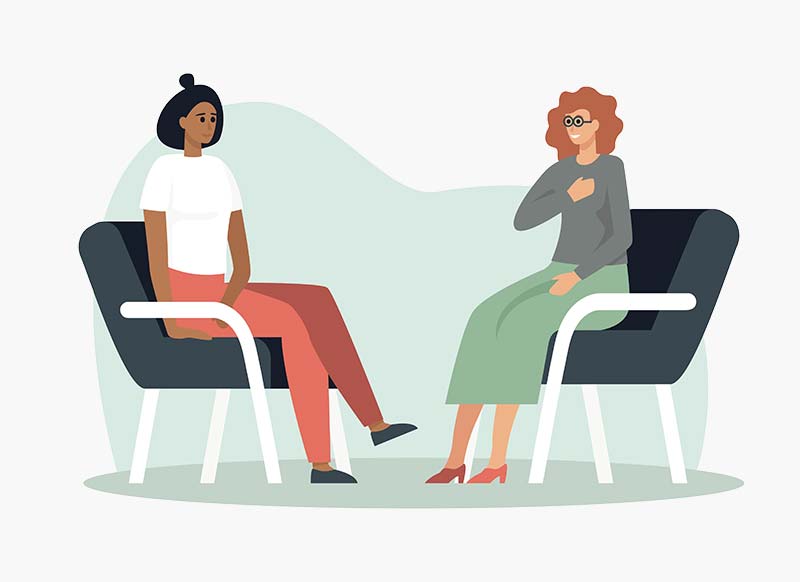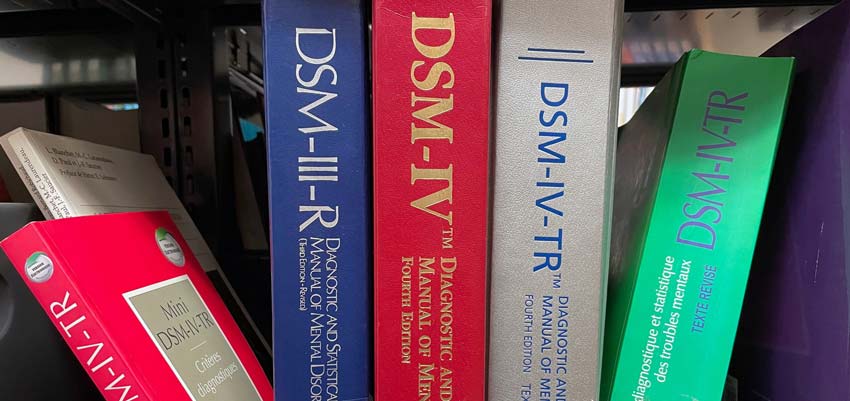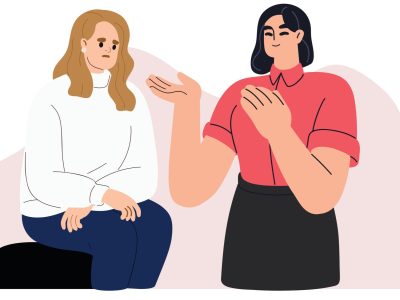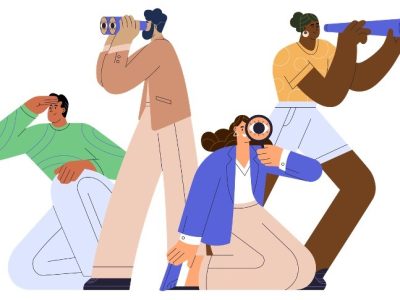No, Lay Counselors Can’t Diagnose.
Why That’s a Good Thing

People often ask us if Lay Counselors can legally diagnose mental health disorders. The answer is no. Even if they could, we wouldn’t train Lay Counselors to do this. Why? While skillful, thoughtful assessment is a never-ending, critical component of effective mental health care, diagnosing is a profoundly problematic, often inequitable, and largely irrelevant clinical task.
Why is diagnosing so problematic?
It can get in the way of our effectiveness as helpers:
- It interferes with the most crucial clinical work: developing and maintaining the therapeutic alliance. The therapeutic alliance is at risk once we have an agenda that does not align with our clients, and clients rarely want to be diagnosed (more on this later!).
- When we believe diagnosing is a primary clinical task, we train our mind to focus narrowly on symptoms, often at the expense of the evidenced-based practice of looking for, eliciting, amplifying, and elevating client strengths.
- The very tools we think will help us with an “accurate” diagnosis are often barriers to developing the trusting relationship that will help us fully understand the client’s struggles. The primary way we obtain information is from client self-disclosures, and disclosures are contingent on trust. Diagnosing drives the overuse of standardized interviewing and assessment protocols, which displaces the necessary time to develop this trust.
It can be unreliable and inequitable:
- Assessing with the goal of diagnosing narrows our vision to the symptoms we need to support a diagnosis, which may lead us to miss or ignore disclosures outside of diagnostic criteria. In this way, it is a driver for confirmation bias.
- We tend to diagnose based on our experience and expertise, which skews our perceptions, leading us to “see” the conditions we feel most confident treating and making it less likely to see what is outside of that.
- It is often racially biased. People of color are under-diagnosed for affective conditions (anxiety, depression) and over-diagnosed for (the more stigmatized) psychotic disorders. Racial bias has also been identified in the diagnosis of PTSD, eating disorders, and other conditions.
- Diagnosis differ considerably between clinicians seeing the same presentation.
- It is a product of the dominant culture’s political beliefs and social norms. In a genuinely horrifying example, in the 1850s, there was a diagnosis for enslaved people who attempted escape (the “treatment” for the “disorder”? Whipping.). For more recent history, one only has to look at the history of homosexuality in the DSM in some form until 1985 (and the problematic “gender identity disorder” now).
- Those with public insurance are subject to more frequent rigid, lengthy, and transactional diagnostic processes than those with commercial insurance. Those who can opt out of insurance entirely, paying cash ($175 and up), are significantly less likely to be diagnosed.
It rarely informs treatment:
- We don’t treat a diagnosis—we address symptoms (when our clients identify them as causing suffering). For example, we address the symptom of psychosis, whether it stems from schizophrenia, PTSD, or depression, and we address hopeless cognition, whether it is the result of depression or anxiety.
- Diagnoses do not determine what we focus on with clients. We help clients with their unique difficulties and struggles, regardless of how these fit (or don’t) into particular diagnoses.
- Diagnoses do not determine treatment planning. A client’s experiences, personality, preferences, beliefs, strengths, values, internal resources, and external supports illuminate the best treatment path.
It is (mostly) irrelevant:
- Diagnosis is a descriptive grouping of human experiences into socially constructed categories. Diagnoses are not “discovered” phenomena; these descriptions and groupings change over time and are deeply influenced by the dominant culture, politics, and individual opinion.
- The single-pathology organization of the DSM-IV does not accurately reflect human experience. For example, anxiety and depression occur together 60% of the time, yet they are still separate categories. This separation has so deeply conditioned our thinking that we assume it’s “true” that these are separate disorders, forgetting it is a construct. In another example of the DSM’s inaccurate reflection of humans, almost 20% of diagnoses given are “residual” (“other” or “not otherwise specified” categories, indicating a presentation that doesn’t conform to any diagnostic criteria).
- The knowledge needed to diagnose no longer belongs solely to clinicians. At one time, only those with extensive knowledge of the DSM and experience applying the criteria could accurately diagnose. Now, anyone can Google diagnostic categories and standardized assessments and often diagnose themselves about as well as licensed clinicians can.
- The great majority of clients do not care about diagnosis. In our direct services work, our team offers to diagnose people if they want. Over the past two years, out of over 350 clients, less than 2% have requested a diagnosis. Three of those requests were for emotional reasons: a validation of sorts that there is something “real” causing their symptoms. The other requests were for legal reasons: school accommodations, stay of deportation, and insurance damages. While these are all important reasons to obtain a diagnosis, none of them relate to treatment.
Of course, all of us working within systems tied to insurance reimbursement must continue to diagnose every client we see every single time we see them. We can, however, put diagnosis in its rightful place—rarely more than an administrative task to obtain payment. Instead, we can direct our focus, energy, time and skills toward what is most helpful in counseling and the heart of the “talking cure”: the therapeutic alliance.


Elizabeth Morrison, Ph.D., LCSW, MAC
CEO of EM Consulting and co-creator of The Lay Counselor Academy
PS: Our goal is for every single suffering person to be able to work with a compassionate, skillful mental health professional without delay (if they want to!). We are working to expand the behavioral health clinician workforce by teaching people without mental health degrees or licenses to do mental health counseling (lay counselors). Reach out to us to learn more!




